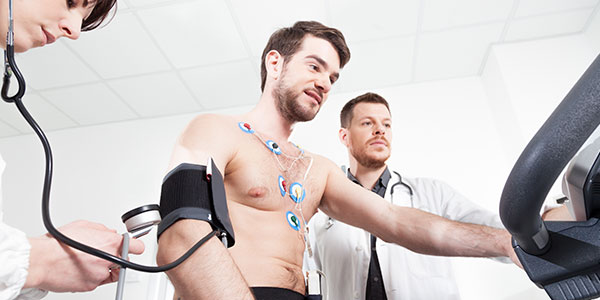Your doctor may ask for a stress test to find out how well your heart is working. A scan, called a stress echocardiogram, records what happens to your blood flow as your heart pumps faster and harder and transmits this information into computerized images. Results can reveal possible problems within the arteries, such as narrowing or blockages from plaque or scar tissue, or structural issues such as a faulty heart valve.
First, an ultrasound technician will take a scan of your chest using a wand-shaped device (transducer) while you’re at rest and lying on your left side.

Next, you’ll have electrodes placed on your chest, arms and legs that monitor your blood pressure and heart rhythm. Then you’ll walk or slowly jog on a treadmill or pedal an exercise bike for 5 to 15 minutes. If you’re unable to walk or pedal, you’ll receive an injected medication, dobutamine, to increase your heart rate. This is called a dobutamine stress echocardiogram.
If you’re on a treadmill or bike, your doctor will instruct you to stop once you’ve reached a target heart rate, you become too tired to continue or you experience any pain or abnormal blood pressure readings.









